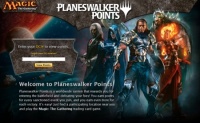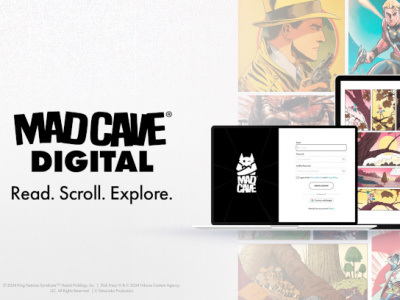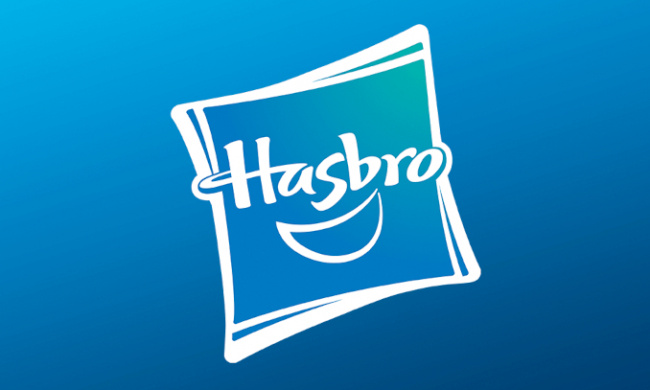 Get In The Game is a weekly column by Dan Yarrington, managing partner of Myriad Games in Manchester & Salem, New Hampshire, Treasurer of the Professional Game Store Association, and Editor-in-Chief of GameSalute.com. This week, Yarrington talks about the new Planeswalker Points program from Wizards of the Coast.
Get In The Game is a weekly column by Dan Yarrington, managing partner of Myriad Games in Manchester & Salem, New Hampshire, Treasurer of the Professional Game Store Association, and Editor-in-Chief of GameSalute.com. This week, Yarrington talks about the new Planeswalker Points program from Wizards of the Coast.Welcome back to Get In The Game, a column that explores proactive ways we can improve the games industry. This week we discuss the power of celebrating and rewarding play, specifically focused on the recent introduction of the new Planeswalker Points program from Wizards of the Coast.
What Changed?
What's the big deal about this Planeswalker Points program? You can check out all the nitty-gritty details at www.Wizards.com/Magic/PlaneswalkerPoints (and an explanation of the changes by Mike Turian), but the gist of it is this: This new incarnation of organized play shifts the focus of the system to encouraging more play. Under the old ELO rating system, the more you played and the better you got, the less you were encouraged to play. In fact, you were penalized for playing Magic: The Gathering once you reached higher levels. You could lose so many points in one loss to a lower-ranked opponent that it would take you weeks of playing to restore your ranking. The focus of the new program is summed up here: "Planeswalker Points is based on a simple premise: playing Magic is awesome and should be rewarded and winning is even better." There are Pro Tour invitations, travel rewards, and tons more prizes on the line, so this change affects millions of players. For the focus of this article, let's look at how it affects stores and local play networks.
Why Play?
Why do we play games? For fun? For the challenge and competition? For the story? For profit? The answer can be any of these, depending on your player profile. We usually play for a combination of reasons (embodied in Magic by the player types: Spike, Johnny, Timmy, Vorthos, and Melvin). The question is, from a business perspective, what types of play do you want to encourage and support. The answer seems obvious: You want to support the play of the customers who spend money, and you want to encourage rewards and styles of play that support sales and investment in a game line. You also want to play in a way that brings in new players, brings back former players, and retains existing players. All of these lead to growth in local game communities.
What does the change mean?
It means that every game counts. It means that from two-player matches to events with thousands of players, every match adds to your standing in the game. You can level up and grow your experience in the game. And there's a level that's eternal--your overall rating--as well as season-specific ratings that matter for qualifying for specific events. There's also an entire tier dedicated to more casual events--Friday Night Magic in this case.
How does this apply outside of Magic?
Quite simply, this is a model that all companies should follow to encourage play. Most games will not need the complexity of a system to handle a game the scale of Magic. That being said, the principles are sound and apply across multiple formats and genres. The underlying goal should always be to encourage more play. Think of it--gaining points for every game you play. Leveling up and seeing yourself advance. Progressing from season to season and building memories with each experience. Memories that are reflected in your play history and reinforced through your public persona on leaderboards. You can even take the winning out of it for less competitive games (roleplaying games, board and card games, etc). You can instead make it about the participation and experience. Encourage players to participate, give them the tools to share and tout the fun they’re having during play. Support these sorts of systems and you end up giving the industry a tool to help us all thrive and continue to grow.
So I say, hooray for play! In the end, it means a healthier industry focused on the experience of playing. It means a way to share our passion for games both within our game groups and to our larger communities. And most importantly, it means more fun!
Talk Back!
What do you think of the Planeswalker Points system? How do you think it compares with the old Magic rating system? How will it impact game support and sales in your local area? Talk Back today!
What are you waiting for? Get In The Game!
The opinions expressed in this column are solely those of the writer, and do not necessarily reflect the views of the editorial staff of ICv2.com.







